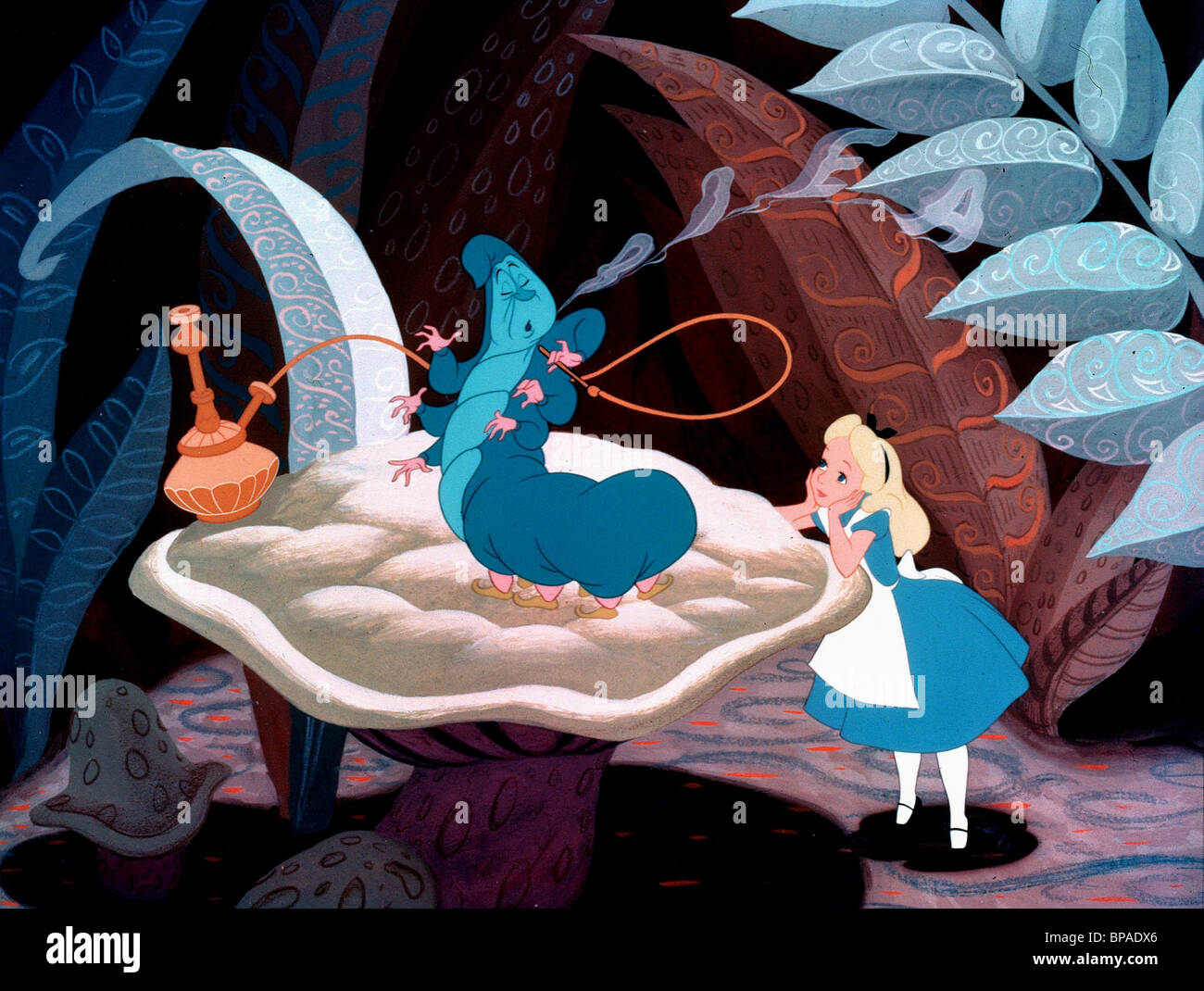No.
Imo the more you think about it the more you realize that “god” is just a very human way to cope with feeling lonely or powerless, and life having no ultimate direction or purpose. People imagine a friend or guardian who has a plan and will set things right, and some use this shared fantasy to make others do what they want.
From the things I’ve seen in my lifetime I can only assume there’s no God, and if there is a God then he’s not worth worshipping for letting the amount of suffering exist as there is in the world today.
Seconded.
Here we go…

EDIT: Surprisingly not as toxic as I thought…
Welcome to Lemmy :)
But for real, if you go to the comment section on instagram or something comparable, its really toxic compared to Lemmy. But I’m also a bit worried as mastodon seems to become more toxic over the time, hopefully Lemmy stays the same
You must’ve been thinking of Reddit…
I don’t believe in any deities. Although, Greek mythology really would be cool if it was real.
Cool, and also terrifying.
Like The Fonz wielding a chain saw
Apatheist here. Whether there is or isn’t a god, I don’t give a shit. Just stop trying to shove your shit down my throat and leave me the fuck alone.
If there is a god, it takes a special sadist to allow the amount of torment present on earth.
So I prefer to believe there’s no higher spirit ravelling in the suffering of all creatures rather than there being a malevolent creator watching with glee as we die a slow, painful death.
deleted by creator
The researcher observing the lion didn’t create the concept of suffering tho
deleted by creator
I love what-if scenarios :)
I think you could go one step further with this theory and say that humans are not that important at all. I mean, why would we think we are? Because god told us so? Maybe he just said that to account for some variable and left it at that. Hasn’t looked back at what we were up to since.
In some distant corner of the universe is a much nicer planet where everyone is living in harmony and peace. We’re just the control group :)deleted by creator
basically believing in god is akin to believing that this is all just a game of sims some twisted being is playing
Nope. At best, religion is a fairytale created for those who are uncomfortable with ignorance, and at worst, it’s a tool to control gullible people.
Do you believe in Santa?
I remember I actually stopped believing in God at the same time I realised Santa wasn’t real.
Same.
Only when If I get expensive gifts.
Yes, and yes to the OP. It’s very similar.
An older family member once asked my siblings and me, as older teenagers, whether we believed in Santa. We scoffed, laughed, and incredulously said of course not.
She responded that she believed in Santa, and she gave this explanation: Santa is a cultural shorthand for generosity. Do you believe in the spirit of giving? Do you want to see smiles on children’s faces on Christmas morning? Do you want to make the people you love light up because you had special, almost supernatural, insight into their heart’s desire and made it real?
I don’t believe a magical man in a red suit gives presents and coal to kids. I similarly don’t believe in a white bearded cloudy Jewish giant in the sky.
But I believe that there’s something sublime and immaterial in the love we can have for one another, something only partially explained by ecologic survival pressures and biochemistry. I think there is something out there beyond what we can perceive on a daily basis, and for lack of a better lexicon, “spiritual” is as good a term as anyone for the realm of the imperceptible.
So I think there’s a God, and I think there’s a Santa. I don’t understand either, and I think they’re neither anything quite like we expect. And God the Creator is certainly an asshole sometimes. But I think there’s Someone out there.
That’s kinda just equivocation though.
Do you believe in Santa Claus?
Yes, but only if you define Santa Claus as something entirely different than what you intended when you asked the question.
Well that’s the issue always when talking about metaphysical beliefs.
There’s the child that beliefs in literal Santa going down the chimney. And there’s the adult that stopped believing in child stories and sees a rich and valuable culture around those stories anyway.
It’s not equivocal, but grown up in an embracing way.
There’s also the grown up in a rejecting way who is never satisfied with either variant, although for some this is just an intermezzo towards the embracing way.
Yes, becuse in my family, all the older family members make him real for the younger kids. We actively work together to make Christmas a magical time by telling stories and staying up late to put out presents. I know that Santa is not a real person but I believe I can keep his “spirit alive” by giving heartfelt presents and spending quality time with my family.
I personally am atheist but I will admit that many religions have good teachings. I don’t believe in the gods from those religions but I can follow the guidelines to living a good life.
I read satan and got so confused by the replies
I believe there is an all powerful being made of spaghetti and meatballs floating somewhere out there. May you all be touched by his noodley appendage!
R’amen
No, not at all. I went to a christian high school and that experience removed pretty much any doubts I might have had.
I’m a happy atheist, don’t really care about all this religious stuff. I don’t mind that others believe, just as long as they don’t impose their views on others.Nope, if I’m wrong and there is a god I plan to kick their dick instead out for all the anguish and suffering that could have been avoided. god cannot be both omnipotent and all loving. Only one or the other.
Also, in the loosely remembered words of Ricky Gervais, “if all recorded history of religion, and of science were suddenly erased from the earth; in a thousand years you’d have all the science back exactly the same, but the religions would be totally different.” Which I find very compelling.
In regards to that quote, there is at least one exception though.
The Naassenes died out in the 4th-5th centuries CE and their two written works were lost until one was recovered in 1945 and they remain largely unknown by lay audiences.
And yet a number of their beliefs are quite alive and well today with no direct influence on that modern resurgence, such as the idea that we are in a non-physical recreation of an earlier world where life occurred spontaneously, that the creator of that recreation was itself brought forth by an original humanity, and that the proof for this lies in the study of motion and rest - particularly around the existence of indivisible parts of matter.
None of that was scientifically indicated in antiquity.
And yet today we see many of those ideas among theology/philosophy inspired by modern science and technology.
The idea that we are in a recreated non-physical simulation of an earlier evolved physical world.
The idea that AI, brought forth by an original humanity, could be running such a simulation.
And many proponents of that theory look to physics (the subject which studies motion and rest) for potential evidence, with many incorporating the now scientifically proven evidence of quantum mechanics (indivisible parts of matter) to support that theory.
So the quote is factually incorrect. There was a set of religious beliefs that was effectively eradicated from public consciousness for nearly two millennia yet has ended up resurging again independent of the original set of beliefs.
(And frankly given developments in just the past 5 years, this rare exception to that quote probably should get a closer look then it has to date.)
Interesting. Can you provide some documentation on the Naassenes and their belief that we are in a ‘non-physical recreation of an earlier world’? I did some brief research just now but couldn’t locate this.
The Naassenes are documented in Hippolytus’s Refutations volume 5, and one of their primary religious texts was the Gospel of Thomas.
Before digging into those texts themselves, it’s also important to know the philosophical context in which they arise, specifically the debate between Epicurean material naturalism and Plato’s theory of forms vs images.
The TLDR on the background is that the Epicureans rejected intelligent design and claimed life evolved through natural processes, and Plato claimed there was a spiritual perfect form with a lesser physical incarnation (and then there could be images of physical things like an artist illustrating a physical bed that was modeled from the spiritual form of a bed in Republic book X).
You see this topic discussed early on in Christian circles in Paul’s first letter to the Corinthians, which touched on certain ideas later found among the Naassenes like the dual Adams:
It is sown a physical body; it is raised a spiritual body. If there is a physical body, there is also a spiritual body. Thus it is written, “The first man, Adam, became a living being”; the last Adam became a life-giving spirit. But it is not the spiritual that is first but the physical and then the spiritual.
- 1 Cor 15:44-46
So starting with the Gospel of Thomas, you have:
Jesus saw some babies nursing. He said to his disciples, “These nursing babies are like those who enter the (Father’s) kingdom.”
They said to him, “Then shall we enter the (Father’s) kingdom as babies?”
Jesus said to them, “When you make the two into one, and when you make the inner like the outer and the outer like the inner, and the upper like the lower, and when you make male and female into a single one, so that the male will not be male nor the female be female, when you make eyes in place of an eye, a hand in place of a hand, a foot in place of a foot, an image in place of an image, then you will enter [the kingdom].”
- Thomas 22 (worth nothing that the Coptic here explicitly used the same Greek term for images as Plato used)
Later on, in describing its creator figure, it expounds:
Jesus said, "If they say to you, ‘Where have you come from?’ say to them, ‘We have come from the light, from the place where the light came into being by itself, established [itself], and appeared in their image.’
If they say to you, ‘Is it you?’ say, ‘We are its children, and we are the chosen of the living Father.’
If they ask you, ‘What is the evidence of your Father in you?’ say to them, ‘It is motion and rest.’"
His disciples said to him, “When will the rest for the dead take place, and when will the new world come?”
He said to them, “What you are looking forward to has come, but you don’t know it.”
- Thomas 50-51 (again, it’s worth remembering that the transition from physical to spiritual embodiment was supposed to happen when the new world arrived per Paul’s letter, so the over-realized eschatology here indicates spiritual embodiment)
There’s an additional indicator in Thomas is here:
Jesus said, “Images are visible to people, but the light within them is hidden in the image of the Father’s light. He will be disclosed, but his image is hidden by his light.”
Jesus said, “When you see your likeness, you are happy. But when you see your images that came into being before you and that neither die nor become visible, how much you will have to bear!”
- Thomas 83-84
The challenge with discerning the earlier ideas of the Naassenes in Pseudo-Hippolytus is twofold - one, it is written by the opposition, and two, this is after Gnostic circles were heavily influenced by Neoplatonism which flipped the script back from “physical first then spiritual” (as Paul cited) to Plato’s spiritual first then physical (which belies the earlier use of images in Thomas as Plato’s images only followed physical incarnation and it was form that preceded the physical - a term absent in Thomas).
Yet still you have indications breaking through in Refutations for the Naassenes:
They rashly assume in this manner, that whatsoever things have been said and done by all men, (may be made to harmonize) with their own particular mental view, alleging that all things become spiritual. […]
And the aforesaid images are figures of the primal man, and of that spiritual one that is born again, in every respect of the same substance with that man. […]
We, however, he says, are spiritual […]
That which is, he says, nothing, and which consists of nothing, inasmuch as it is indivisible — (I mean) a point — will become through its own reflective power a certain incomprehensible magnitude. This, he says, is the kingdom of heaven, the grain of mustard seed, the point which is indivisible in the body; and, he says, no one knows this (point) save the spiritual only.
- Hippolytus’s Refutations V
Looked at through the lens of canonical Christianity, these ideas say one thing, but through the lens of Thomas (the group in question is the only one explicitly said to have been following it) the interpretation is wildly different.
In Thomas, the cosmos is already a dead body (like Leucretius’s claims the cosmos was like a body that would one day die). The rest for the dead and the world to come has already happened but we don’t realize it. The images around us are its creator’s light, a creator that was eventually established in light and took on earlier images. Adam (which can be translated as humanity) came from great wealth but is now dead, and we are allegedly the children of its eventual creator of light (which in Pseudo-Hippolytus is clearly described as having been brought forth by an original Primal Man/humanity).
Also important is that contrary to the canonical interpretation of being born again, in Thomas being born again is literally being born as babes, with “a hand in place of a hand” and “an image in place of an image.”
The key component here is the foundation of Epicurean naturalism. That’s very present in Thomas, which entertained naturalism as the origin of the soul (saying 29) but lamented and rejected the Epicurean claims of the soul’s dependence on the body (saying 87), appealing to an eventual demiurge in line with Plato’s ideas as recreating the images of what came before in its light.
By the 4th century when Pseudo-Hippolytus is recording the beliefs, Epicureanism has fallen from favor in the rise of Neoplatonism which muddies the waters a fair bit, and yet you still have repeated claims of its audience actually being spiritual as well as the quite radical idea that its creator was brought forth by an earlier ‘man.’
An important context for why these beliefs might have been deemed necessary can be seen in Against Heresies book 2 chapter 14 discussing ‘Gnostic’ beliefs in the 2nd century in general:
Then again, as to the opinion that everything of necessity passes away to those things out of which they maintain it was also formed, and that God is the slave of this necessity, so that He cannot impart immortality to what is mortal, or bestow incorruption on what is corruptible
If there are limits on divine powers such that what is mortal cannot be immortal, then immortality can only be achieved by being born immortal. Hence the development of beliefs of a second birth from mortal form to immortal. Which in Thomas differs from canonical tradition in that it is not a symbolic ritual but literal birth as a babe, much as its Eucharist is not of consuming a physical body but in consuming the words left behind (saying 108).
If you are interested in this topic, I can’t recommend enough reading through De Rerum Natura first. The Naassenes explicitly describe the origin of the world as owed to indivisible points called seeds, language that is uniquely from Leucretius who writing in Latin used ‘seed’ in place of the Greek atomos. To say nothing for the close parallels between Thomas and the work regarding cosmos as dead bodies or referring to seed falling by the wayside of the path (in Leucretius describing failed biological reproduction and in Thomas describing what survived to reproduce as what multiples following a saying about how the human being is like a big fish selected from smaller ones).
That is wild! How dare you bring awkward facts into a faith-orientated discussion…
What an absolutely crazy thing
I think this case is far too micro in scale when the question looks at the concept of religion and science as a whole. Of course you’ll have similar ideas across centuries that trend up and down like everything else does. If humanity just went back to have no idea what religion or science is, when they rebuilt their understanding of the world, science would be entirely the same. All of science. Not a handful of theories. The whole thing. People will make new gods though. The planet is completely different now. The reasons religion was even thought about will no longer be the same. The quote really pushes the stance that religion as a concept and whole is made up, and science is not.
If Ricky Gervais ends up in mastodon I’d want to hear their reasoning.
There’s no reason to believe that the second round of science would still arrive at earlier theories such as the pudding model of the atom.
That was very much a part of science. But it isn’t any longer as a result of experimental evidence.
So your rebuttal glosses over the many failed scientific theories but then uses the failed religious ideas to invalidate any religious ideas.
When in truth, both science and religion have historically attempted to explain the unexplained. The methodology of science is much better, but they have both had many examples of dumb ideas in retrospect.
The reason why the Naassenes had such interesting ideas was that they ended up having incorporated the ideas of Leucretius, who in 50 BCE had written the only extant work from antiquity to describe survival of the fittest in detail.
At the time, there was no experimental evidence to support or falsify such theories. But at the time a religious group working on extrapolating theories built on top of naturalism ended up landing on very similar ideas to what we currently come up with having experimentally landed on evolutionary theory and having turned Plato’s eventual creator of worlds (another philosophical influence on the Naassenes) from theory to practice.
So while science is more likely to be right more often as a result of far better methodology, the problem with the quote is that it’s a “heuristic that almost always works” and fails to consider the edge cases when religious thought had attached itself to natural explanations which later turned out to be correct.
Effectively, any ideas predicated on concepts which will eventually be experimentally validated should be expected to arise again even after erasing earlier theorizing, as it’s the replicability of experimental results that drives that reproduction. And any ideas, whether a part of science or outside of it, which are predicated on eventually falsified ideas have no guarantee of reproduction.
The mistake the quote embodies is the assumption that it’s impossible for theological ideas to have attached themselves to experimentally reproducible concepts. But that has happened before, and it meant that the extrapolated theological concepts were also reproduced.
And that’s to say nothing for the many reproduced beliefs on other reproducible foundations such as dying and rising gods or katabasis that occurred in completely separate communities. In those cases it was a result of watching the stars and observing the orbit of Venus dropping down below the ground to arise again days later. So you had a central American God navigating the underworld and resurrecting the dead associated with Venus independent and parallel to Ianna in the Mediterranean navigating the underworld and associated with Venus. Or the common beliefs about the immortality of snakes because of their shedding.
The quote is the kind of thing that seems clever but is factually incorrect and betrays the one offering it up as uninformed of what they are talking about despite their self-assuredness in borrowed pithiness.
The quote is not mistaken. It simply states that religion is made up by humans, and science is not. That’s all I think it tries to say and anyone with an understanding of science can see that too. An exception or two where religion and science lined up doesn’t change that religion is divisive and a human creation.
Do you believe in Santa?
Last year my youngest was in kindergarten around the time of St. Patrick’s Day here in the U.S. At some point they went out to recess and came back in to find little chocolate coins wrapped in gold foil on their desks. I picked him up after school and as we were driving away I asked how school was. He told me that he thinks leprechauns might be real. I asked what made him think they might be and he gave me the “we left class and when we came back there was chocolate on our desks” answer. I asked him if something else could have happened, like a teacher leaving them, and he said no, because the door is locked when they leave. I told him “maybe it was a rainbow unicorn who left the chocolate.” His response was very dismissive. He said “no Dad, that’s impossible because rainbow unicorns don’t exist.” He’s a sharp kid but he’s not quite at the logic stage. :)
leprechauns
Kids brains are funny. I used my superior child logical skills to proof to my parents why santa is not real, I was so proud… And a few years later I had an absolute psychological meltdown crisis after realizing that the Easter bunny isn’t real 🥲
I mean, who else is bringing me presents on Christmas?
The tooth fairy?
No, and I have peace in my life because I do not have that abusive relationship.
Which one?
Lol, only one?
OP specified a singular. I simply responded in kind
No. And while I will treat those who do with the same level of dignity and respect I grant to everyone, I secretly do think less of them for it (especially when I see them perpetuating the indoctrination with their children).















